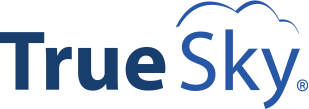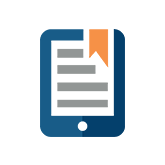Is Budgeting for Business the Same as Doing a Personal Budget?
 Budgeting for business can seem a lot more complicated than creating a personal budget, but in reality they are not all that different.
Budgeting for business can seem a lot more complicated than creating a personal budget, but in reality they are not all that different.
When budgeting for business, you are:
- Projecting your income for a certain time period (a month, a quarter, a year, etc.).
- Projecting your expenses for a certain time period.
- Projecting your profit for a certain time period.
With a personal budget you are:
- Projecting your income for a certain time period (a month, a quarter, a year, etc.)
- Projecting your expenses for a certain time period.
- Projecting your savings for a certain time period.
At its essence, a budget is planning your income and your outgoing expenses — that is it. And those principles do not change even when you are budgeting for different goals.
In your personal budget, if you make $5,000 per month, then you need to spend $5,000 to break even, or less to save money. To increase your savings, then you need to either increase your income, or decrease your spending.
In a business budget, if you know that you charge $20 for your product and your expenses are $5,000, then you need to sell 250 units to break even. To increase your profit margin, you would either need to sell more product (make more income) or cut down your expenses.
Once you have been budgeting for a while, whether it is for business or your personal bank account, you can start to see patterns and trends. For instance, in your personal budget, you might spend more on gifts around December. In your business, you might spend more on marketing around December if you have a holiday-focused product or service. These patterns help you plan and make strategic decisions.
Both types of budgets also have fixed expenses that you need to consider.
For a personal budget, you might need to make sure you have enough money to cover your mortgage payment and utilities. Other expense lines you may have some wiggle room with, such as your grocery budget or car expenses, but you still have a minimum amount that you need to spend to get by. If you take out a personal loan, then you need a plan to pay it back.
For a business budget, you would also need to pay your rent and utilities, pay your staff, insurance costs, etc. If you take out a business loan, then you need a plan to pay it back.
In either case, you need to know where your money is going.
Your corporate budget might have considerations to make, such as:
- How much money does the sales department need to spend to bring in their expected revenue?
- How much more income do we need to cover administrative costs?
- Why did we spend 10% more on office supplies than projected?
Your personal budget might have considerations to make, such as:
- If I want to pay my mortgage off sooner, how big should my monthly payment be?
- How much more income do we need to cover a vacation?
- Why did we spend 10% more on groceries than projected?
One major different between business and personal budgets is that in a corporate budget, forecasting is typically much more significant. For most people, income is fairly constant from month to month. However, in a business, its important that leaders pay attention to their revenue forecast to accurately plan for the months ahead. Over time, and by comparing your actuals to your forecasted budget, business leaders can get a better idea of what types of numbers to aim for.
Where business budgets can also differ is in the number of people who work on them. In a bigger organization, there might be 10, 20, or even 50 people collaborating or providing input into the budget. It can become difficult to track and it is easy for errors to be made.
The right business budgeting and forecasting software can help you simplify your process and get back to analyzing the numbers, rather than inputting and administrating them
For instance, True Sky’s corporate performance management software allows you to plan out the workflow process, collaborate easily, and provide real-time updates to everyone involved — all while using the familiar and powerful interface of Microsoft Excel.
Take control of your budgeting, planning, and forecasting process today. Learn how True Sky can help by calling 1 855 878 3759 or visiting www.truesky.com.



